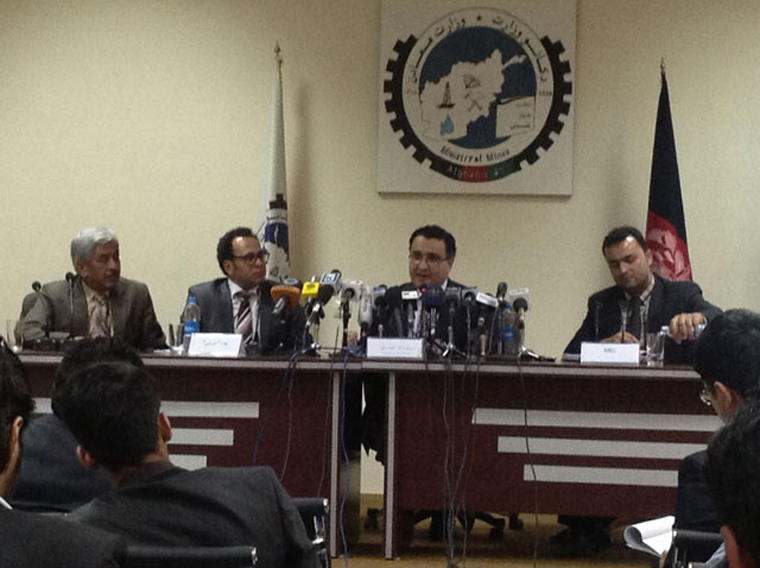A Step Toward Transparency in Afghanistan's Mining Sector

Kabul, Afghanistan - USIP's Sustainable Economies director, Raymond Gilpin, attended a press conference this week at the Ministry of Mines in Kabul, Afghanistan which announced the release of more than 200 mining contracts on the ministry's website.
In his opening remarks, Minister Wahidullah Shahrani stated that mining contracts are "public documents and not state secrets," and explained that the release demonstrates his ministry's commitment to full transparency and openness in the extractive sector. Henceforth, all mining contracts should be published in full within 72 hours of their enactment. Minister Sharani emphasized that "no deals will be signed in secrecy or hidden from [the people, who are] the rightful owners of Afghanistan's abundant natural resources.
The release of the mining contracts is pursuant to President Karzai's decree #45 of July 26 2012, shortly after the Tokyo donors' conference which highlighted the urgent need for demonstrable accountability and reduced corruption. By posting so many contracts, the ministry is taking an important step toward increased transparency but much more needs to be done. Conspicuous by its omission is the controversial Aynak copper contract between the Afghan government and the Metallurgical Corporation of China which is riddled with accusations of corruption and impropriety. In his responding to questions, the minister acknowledged that some contracts remain problematic but they would be published after the kinks have been worked out. There was also not much clarity on the modalities for interested stakeholders (particularly civil society) to engage the ministry if concerns exist. To be credible, the release of the contracts must be more than an event. Transparency in this sector should be a predictable process with clear points of engagement and lines of responsibility.
The complete publication of all mining contracts is a useful first step that must be complemented with robust mechanisms to effectively monitor the contractual obligations of the companies and the responsibilities of national and provincial government entities.
Speaking in Kabul, Gilpin observed: "Mineral resources could play a critical role in helping Afghanistan establish structures for effective democratic governance, durable political stability and shared economic prosperity as the country prepares for the 2014 transitions. This potential would only be realized if robust measures are put in place to ensure and enforce transparency at all levels.”
“By disclosing mining contracts, Afghanistan's Ministry of Mines is signaling its intent to initiate a process that could help curb corruption and make the country's natural resources true national resources,” Gilpin said.
USIP's Center for Sustainable Economies is working with local and international partners to improve transparency in Afghanistan's mining sector and establish effective mechanisms to monitor the revenue and non-revenue impacts of extractive industry activity in selected mining areas. These efforts should help reduce tensions and decrease the likelihood of violent conflict.
Gilpin traveled to Afghanistan for a workshop and consultations on mining industry regulation and transparency issues.
USIP has worked to promote peace and stability in Afghanistan since 2002 and opened an office in Kabul in 2008.



